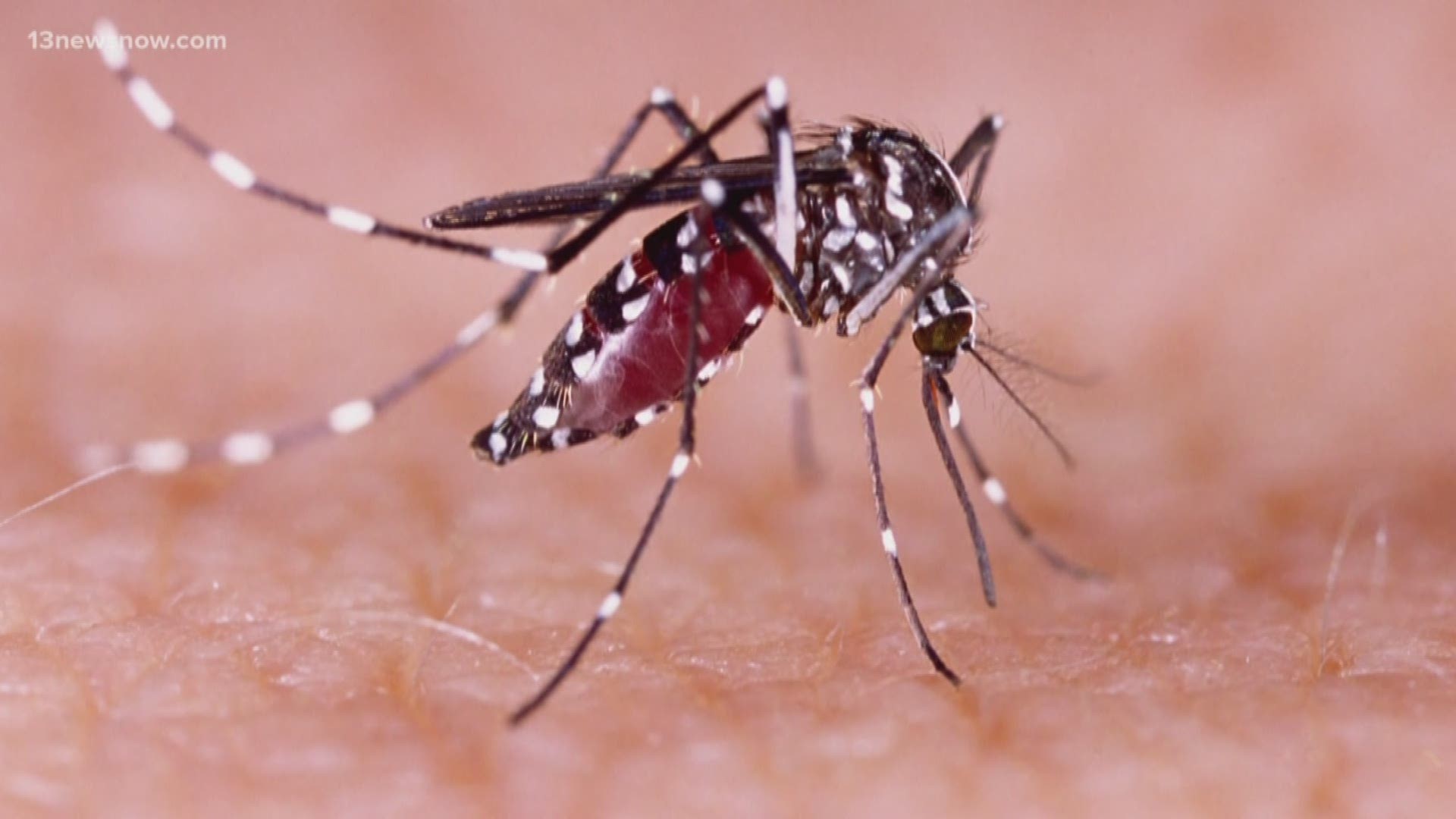If you’ve spent any time outside, you've noticed that mosquitoes are out in full force.
The annoying bugs don’t just cause problems for humans, they can make pets very sick.
Just one bite from a mosquito can infect a dog with heartworms.
To figure out the best way to fight this problem, 13News Now Meteorologist Tim Pandajis went to Dr. Denette Cooke of Cooke Veterinary in Chesapeake.
“Heartworm is spread by mosquitoes," Dr. Cooke said. "The mosquito has to bite an infected dog, and then that mosquito will fly around for several weeks while it molts. The heartworm larvae will molt inside the mosquito, then it will bite an uninfected dog and spread it.”
Mosquitoes pretty much have zero purpose, aside from ruining a nice evening outdoors with itchy, irritating bites they are also carriers of a disease that is running rampant in Hampton Roads, heartworms.
In Virginia Beach and Chesapeake, one in every 100 dogs has heartworm disease.
In Isle of Wight and Suffolk, it's one in 50.
In North Carolina, it's one in 20 dogs in Pasquotank and Currituck counties has heartworms.
And these aren’t just ordinary worms.
“Heartworms can live 5-7 years if untreated, the average worm, the male may be about 6 inches in length while the female is about 12-14 inches and then these worms multiple inside the dog. They are found in the pulmonary artery and then they back down into the heart, that’s why we call them heartworms. So left untreated, dogs can have hundreds living in their heart,” according to Dr. Cooke.
Gross, right? Folks, this is entirely preventable!
Monthly preventatives come in all forms so if your pet doesn’t take the oral chew then there are injections and topicals that are just as effective.
If you haven’t been keeping up with a preventative, Dr. Cooke said to relax, your vet can do a simple blood test to see if they have heartworms.
If so, there is an injection that will slowly kill off the heartworms.

